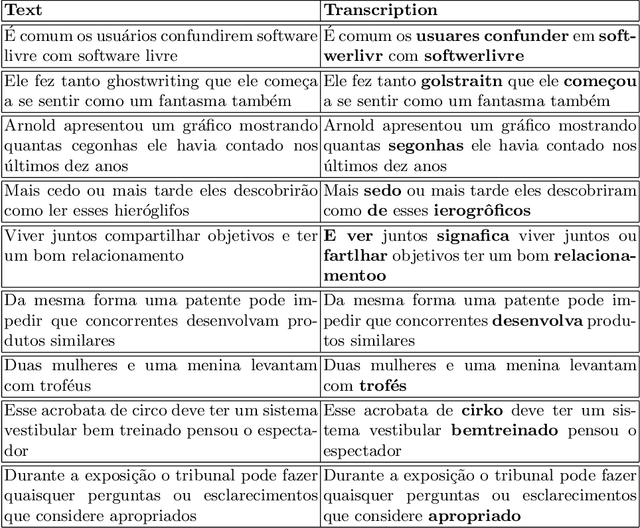Brazilian Portuguese Speech Recognition Using Wav2vec 2.0
Paper and Code
Jul 23, 2021



Deep learning techniques have been shown to be efficient in various tasks, especially in the development of speech recognition systems, that is, systems that aim to transcribe a sentence in audio in a sequence of words. Despite the progress in the area, speech recognition can still be considered difficult, especially for languages lacking available data, as Brazilian Portuguese. In this sense, this work presents the development of an public Automatic Speech Recognition system using only open available audio data, from the fine-tuning of the Wav2vec 2.0 XLSR-53 model pre-trained in many languages over Brazilian Portuguese data. The final model presents a Word Error Rate of 11.95% (Common Voice Dataset). This corresponds to 13% less than the best open Automatic Speech Recognition model for Brazilian Portuguese available according to our best knowledge, which is a promising result for the language. In general, this work validates the use of self-supervising learning techniques, in special, the use of the Wav2vec 2.0 architecture in the development of robust systems, even for languages having few available data.
 Add to Chrome
Add to Chrome Add to Firefox
Add to Firefox Add to Edge
Add to Edge